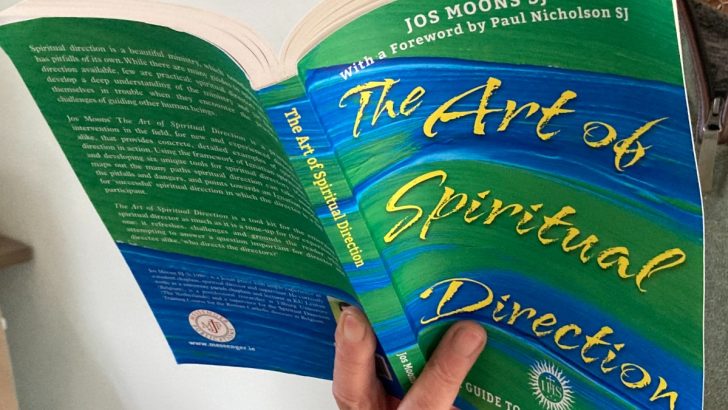The Art of Spiritual Direction: a guide to Ignatian practice
by Jos Moons SJ, with a foreword by Paul Nicholson SJ (Messenger Publications, €19.99/£18.99)
Most of us recognise in areas of our life and leisure that training is important, and that practice is needed to keep in trim. Yet when it comes to matters of the mind and spirit many are apt to think that they can muddle through without training or practice at all. That the insights will come anyway. But this is not the case. This is where spiritual direction is essential.
Fr Jos Moos, a Belgian Jesuit of great experience in the field of spiritual guidance at several levels, intends his book not only to those who are spiritual directors, but also those taking direction, for it will help them too to better understand the process.
We have to remember that when the Society of Jesus came into being it was modelled on military discipline, the army having been St Ignatius Loyola’s profession. But military disciples consist not in actual fighting, but in the steady long term preparation. It is indeed akin to learning tennis or golf, the more one plays the better you become, the better prepared eventually to meet a challenger.
Catholic viewpoint
The author emphasises the point that though his text is written from a Catholic viewpoint, it will be found useful by Christians of other persuasions. Of course, it is intended not be used alone, but in the course of spiritual development framework. For this reason it can be highly recommended.
The last chapter of the book is focused on ‘vocational discernment’. These days Catholics speak of falling vocations and an ageing clerical cohort. In fact I have long suspected that many still hear a call, but unlike the 1950s and earlier, they answer it in other ways: in social work, in development campaigns in developing countries, in marriage guidance, and such like. They focus their skills. Yet there remain others who hear the call in a more pastoral, priestly way. But they will be older, more mature, and not straight out of school as they once were. These make for better priests.
But this point shows us that what actions we take do not blindly have to follow tradition. They must be appropriate to the times we live. In the coming social change involved in a post-pandemic world, the world will have need of these approaches and skills. Fr Moons’ book will help many Christians, I suspect not to make things ‘normal’ again, but to make a new world, which as so often we are told is the true call of the gospel: a world new every day then, an new day for all and not just for some. A book like this suggests a way ahead in the coming post-pandemic world.


 Peter Costello
Peter Costello
